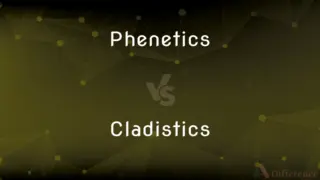Atheist vs. Heathen — What's the Difference?
By Tayyaba Rehman & Fiza Rafique — Updated on March 12, 2024
An atheist disbelieves in the existence of deities, focusing on a lack of faith, while a heathen traditionally refers to someone from a non-Christian culture or religion, emphasizing difference in belief.

Difference Between Atheist and Heathen
Table of Contents
ADVERTISEMENT
Key Differences
An atheist is someone who lacks belief in gods or deities, grounded in skepticism towards religious claims. This position is typically based on a rationalist and often scientific approach to understanding the universe. Whereas a heathen, in historical contexts, referred to people outside the Abrahamic faiths, particularly before the spread of Christianity in Europe, implying a lack of adherence to the Christian faith rather than a denial of all deities.
The term atheist is used in a broad sense to describe a wide range of non-believers, from those who actively deny the existence of gods to those who simply live without religious belief. On the other hand, the term heathen has evolved over time and can carry connotations of paganism or polytheism, referring to individuals who practice religions that predate or are outside of mainstream monotheistic religions.
In contemporary discourse, atheism is often associated with secularism and the separation of church and state. It champions scientific inquiry and skepticism as tools for understanding the world. Meanwhile, heathenism can be associated with a revival or continuation of pre-Christian or indigenous religions, with practitioners sometimes embracing the term as a positive identifier of their spiritual or religious practices.
While atheism rejects the concept of divine beings or religious dogma, heathenism may involve a complex set of beliefs that include polytheism, animism, or ancestor worship. This distinction points to atheism's focus on disbelief as its core, whereas heathenism may center around a different, often nature-based, spiritual or religious system.
Despite their differences, both terms have been subject to misinterpretation and stigma. Atheists might face assumptions about their moral or ethical beliefs, while heathens could confront misunderstandings about their practices or beliefs. However, both communities seek to challenge these misconceptions through dialogue and education.
ADVERTISEMENT
Comparison Chart
Definition
Disbelief in the existence of deities
Traditionally, non-adherence to Christianity, often implying paganism
Focus
Lack of belief in gods
Cultural or religious identity outside of mainstream monotheism
Associated With
Secularism, scientific skepticism
Paganism, polytheism, indigenous religions
Belief System
No belief in gods or divine beings
May believe in multiple gods, nature spirits, or ancestral spirits
Modern Usage
Broadly, anyone without religious belief
Often used positively by practitioners of pre-Christian or non-mainstream
Compare with Definitions
Atheist
Someone skeptical of supernatural claims.
As an atheist, she relied on scientific evidence to understand the universe.
Heathen
A person regarded as lacking religion or morality.
The term heathen was wrongly used to justify cultural imperialism.
Atheist
A participant in secular movements.
She attended the conference as an advocate for atheist rights.
Heathen
A practitioner of neopaganism or similar paths.
She celebrated the solstices according to heathen traditions.
Atheist
An individual without a religious affiliation due to disbelief.
He identified as an atheist and valued secular philosophy.
Heathen
Historically, a non-Christian or non-Jewish person.
Ancient texts referred to the local tribes as heathens.
Atheist
A person who does not believe in the existence of deities.
The atheist debated the theologian on the existence of God.
Heathen
Someone practicing a pre-Christian or indigenous religion.
He identified as a heathen, following the old Norse gods.
Atheist
One who rejects religious dogma.
The author's atheist views were evident in his writings on ethics.
Heathen
Someone outside mainstream religious beliefs.
As a heathen, he felt disconnected from the dominant monotheistic cultures.
Atheist
Disbelief in or denial of the existence of God or gods.
Heathen
A person who does not belong to a widely held religion (especially one who is not a Christian, Jew, or Muslim) as regarded by those who do
A chance of salvation for the heathen
My brother and I were raised, as my grandma puts it, as heathens
Atheist
(religion) A person who does not believe in deities.
Heathen
Relating to heathens
Heathen practices
Atheist
(narrowly) A person who believes that no deities exist one who has no other religious belief.
Heathen
An adherent of a religion that does not worship the God of Judaism, Christianity, or Islam.
Atheist
(broadly) A person who rejects belief that any deities exist (whether or not that person believes that deities do not exist).
Heathen
Such persons considered as a group.
Atheist
(loosely) A person who has no belief in any deities, such as a person who has no concept of deities.
Heathen
Heathen An adherent of a Neopagan religion that seeks to revive the religious beliefs and practices of the ancient Germanic peoples.
Atheist
(uncommon) A person who does not believe in a particular deity (or any deity in a particular pantheon), notwithstanding that they may believe in another deity.
Heathen
One who is regarded as irreligious, uncivilized, or unenlightened.
Atheist
(proscribed) A person who does not believe in any religion (not even a religion without gods)
Heathen
Such persons considered as a group.
Atheist
Of or relating to atheists or atheism; atheistic.
Heathen
Not adhering to the Christian religion (though usually excluding the Jews); pagan.
Atheist
To make someone an atheist.
Heathen
(by extension) Uncultured; uncivilized; savage, philistine.
Atheist
One who disbelieves or denies the existence of a God, or supreme intelligent Being.
Heathen
Alternative case form of Heathen.
Atheist
A godless person.
Heathen
A person who does not follow a Christian religion; a pagan.
Atheist
Someone who denies the existence of god
Heathen
(by extension) An uncultured or uncivilized person, philistine.
Atheist
Related to or characterized by or given to atheism;
Atheist leanings
Heathen
Alternative case form of Heathen.
Heathen
An individual of the pagan or unbelieving nations, or those which worship idols and do not acknowledge the true God; a pagan; an idolater.
Heathen
An irreligious person.
If it is no more than a moral discourse, he may preach it and they may hear it, and yet both continue unconverted heathens.
Ask of me, and I shall give thee the heathen for thine inheritance.
Heathen
Gentile; pagan; as, a heathen author.
Heathen
Barbarous; unenlightened; heathenish.
Heathen
Irreligious; scoffing.
Heathen
A person who does not acknowledge your God
Heathen
Not acknowledging the God of Christianity and Judaism and Islam
Common Curiosities
How are atheists and heathens viewed in society today?
Views vary widely, but atheism is becoming more accepted in many places, while heathenism, especially as part of neopaganism, is gaining recognition and understanding.
Can a person be both an atheist and a heathen?
It's unlikely, as atheism involves a lack of belief in gods, whereas heathenism typically includes belief in multiple deities or spiritual entities.
Can atheists be spiritual?
Yes, atheists can have a sense of spirituality that does not involve belief in gods, often focused on nature, human connections, or the universe.
How do atheists find meaning in life?
Atheists may find meaning through personal fulfillment, relationships, the pursuit of knowledge, and contributing to the well-being of society.
Do heathens believe in an afterlife?
Beliefs about the afterlife vary among heathens, with some traditions embracing concepts of an afterlife or reincarnation.
Are all pagans heathens?
Not necessarily. "Heathen" often refers specifically to those following Germanic or Norse paganism, whereas "pagan" is a broader term.
What defines an atheist?
An atheist is someone who does not believe in any gods or deities.
Why do some people prefer the term "heathen" over "pagan"?
Some may prefer "heathen" to specifically identify with Germanic or Norse traditions, distinguishing themselves from other pagan paths.
What does "heathen" mean historically?
Historically, "heathen" referred to people who did not follow the Abrahamic religions, often in the context of pre-Christian paganism.
Is heathenism a religion?
Yes, heathenism can be considered a religion, especially in the form of modern paganism, with its own deities, rituals, and spiritual beliefs.
Do atheists celebrate religious holidays?
Some atheists may celebrate cultural aspects of religious holidays without the religious significance.
Can heathens belong to organized religions?
Yes, many heathens practice within organized forms of modern paganism that have structured beliefs and community rituals.
Can atheism be considered a belief system?
While not a belief system in the religious sense, atheism can be part of a worldview that emphasizes secularism, humanism, and rationalism.
What is the main difference between atheism and agnosticism?
Atheism is the lack of belief in gods, while agnosticism is the position of being unsure or believing that the existence of gods is unknowable.
What are common misconceptions about heathens?
Common misconceptions include the idea that heathens are anti-Christian or that their practices are not genuine religions but rather reenactments of historical practices.
Share Your Discovery

Previous Comparison
Flour vs. Farina
Next Comparison
Deception vs. FraudAuthor Spotlight
Written by
Tayyaba RehmanTayyaba Rehman is a distinguished writer, currently serving as a primary contributor to askdifference.com. As a researcher in semantics and etymology, Tayyaba's passion for the complexity of languages and their distinctions has found a perfect home on the platform. Tayyaba delves into the intricacies of language, distinguishing between commonly confused words and phrases, thereby providing clarity for readers worldwide.
Co-written by
Fiza RafiqueFiza Rafique is a skilled content writer at AskDifference.com, where she meticulously refines and enhances written pieces. Drawing from her vast editorial expertise, Fiza ensures clarity, accuracy, and precision in every article. Passionate about language, she continually seeks to elevate the quality of content for readers worldwide.















































